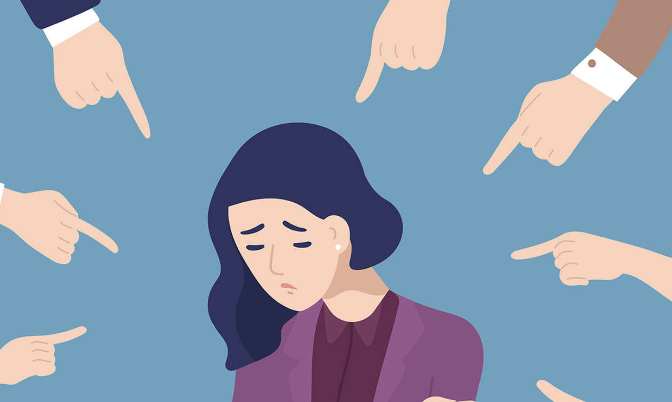Written by Eesa Kushalie (PSYCHOLOGIST, THERAPIST) | December, 2022
(Cover photo: Suparat Malipoom / EyeEm / Getty Images/EyeEm Premium) At times, in a relationship, you may feel that your partner is no longer someone you know, or feel that your goals do not align with each other’s, or even just find your partner irritable. Now, this may not be an issue at all, if anything, these are things everyone experiences in a relationship one time or another. However, these problems that arise can start snowballing and cause major chaos if not dealt with properly. Many relationships face the end due to the mere fact that they do not have good conflict resolution skills even if there is love between the partners. So, let’s take a look at some tips for conflict resolution so that you can prevent your own relationship from coming to an end:1) Identify your conflict style
We all have different ways of dealing with conflict. We may not always partner up with someone who shares the same way of resolving problems. When one partner decides to go to bed angry and solve it the next day, the other might want to finish the argument overnight. While one partner stays quiet, the other might shout to let it out. Knowing what your own conflict style helps you understand what your own needs are before tending to your partner. This way, both partners can collaboratively come to a compromise on what works for each other. [1]
2) Find the root cause of conflict
Sometimes in relationships we face stressful times where we are so focused on one problem that it spirals into another and it keeps going up until the point where we forget where it started.
This leads to a pile of problems and dissatisfaction in our relationships, which is why knowing the root cause is vital to resolving conflict.
To do this, try and find a time where you and your partner are both in a calm space, ask yourselves ‘When did things get bad? What led us here? What was our relationship like before this?’ and individually, ‘Am I causing conflict? What is my partner doing for me to feel this way?’. These are some questions to get to the root cause before finding a solution.
3) Making sure partners have mutual respect
While arguing, there is a tendency to go off-track, bring up the past, cuss at one another and unknowingly or knowingly hurt each other. These only add to that pile of problems mentioned earlier.
Being in a relationship, partners are bound to get annoyed at some things and lose patience from time to time, but not all hope is lost, as cliché as it sounds. Remind yourselves that it is the problem vs. the partners, do not try to pit yourself against each other. When trying to resolve conflict, respect your partner as you would like to be respected. Do not cuss, bring up past issues that have already been solved, do not call each other any names, try to use a calm tone and stick to the issue at hand.
If things start to escalate and you feel yourself losing your cool, take a time out, come back when you are ready to listen and be heard. Not only are you respecting your partner, but it also shows you respect yourself.
4) Know your partner’s love language
Now you might wonder, what does this have to do with resolving conflict. Thing is, we all feel loved in similar and different ways, whether it be through physical affection, words of affirmation, gifts or other.
At the end of the day, we just want to feel loved. Some conflicts take place because one does not know what their partner requires, they assume what their partner wants or needs. For example, let’s say a woman expects her partner to get her flowers and a simple card for her birthday, but instead he plans an extravagant party. Now, she might like the party too, but maybe she just wanted a quiet night in with her partner. These things can slowly build up to a point of conflict because she feels like he does not know what she wants and she also does not voice what she wants. There is no one to be blamed here, it is about communicating what you want and how you want to be loved.
Therefore, knowing your partner’s love language and communicating that can help you avoid and resolve conflicts.

5) Communication
Last but not least, a very important point is how we communicate with our partners.
In the previous tips, there were bits and pieces on the importance of communication. What we do not realize is that we may not always use the best words, or the right tone in which we want to communicate. Of course, there is space for misinterpretation no matter how great we use our language and/or speech, but, there is always room for improvement.
Simply altering our tone from a stern, firm voice to a soft, calming voice and altering our volume can make a big difference. Try it right now! Moreover, use kind words, I cannot stress this enough, use good and kind words. By doing this, not only do you feel better, your partner feels better and you both can make a better compromise and resolve most conflicts.
In addition, try to avoid phrases like “you never do this”, “you always do that”, instead go for “I feel like this because…” or “I would like it if you could…”, which might save your relationship more than you realize.
In conclusion, try out these tips, see if it makes a change not just in your relationship with your partner, but even your other interpersonal relationships. Some of these tips can even help you have a better relationship with yourself. This is not to say that you can prevent all conflict or it is going to end badly if you do not find ways to resolve conflict, it is sometimes better to heal along the way than wait for a wound to fester and then find a fix.
References
[1] Michael D C Fishman, MD, Priscilla J Slanetz, MD, MPH, Five Tips for Successful Conflict Negotiation in the Breast Imaging Workplace, Journal of Breast Imaging, Volume 3, Issue 3, May/June 2021, Pages 381–386, https://doi.org/10.1093/jbi/wbaa094
About Therapist Eesa Kushalie

Eesa Kushalie is a Psychologist/Therapist and is currently an associate member of the American Psychological Association. She spent most of her career working with children, youth and in recent years with adults. Eesa currently works with adults who face anxiety, depression, relationship issues and personal issues along with other mental health concerns. Her approach is eclectic, therefore, she uses different evidence based approaches, cognitive behavioral therapy, positive psychology interventions and others as needed. She has a particular interest in helping individuals facing transitions in their life, as change is a constant and it is important to know how we can adapt.



